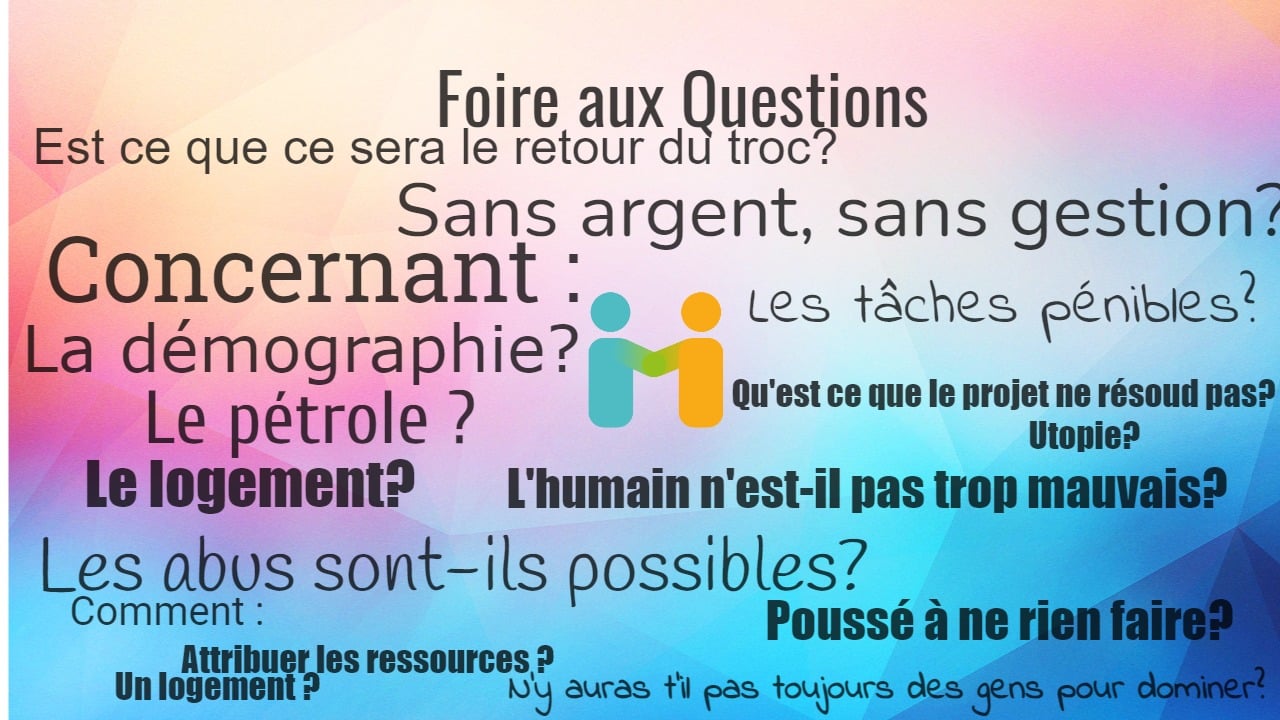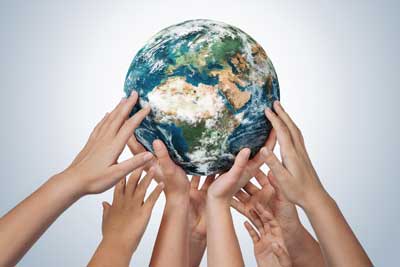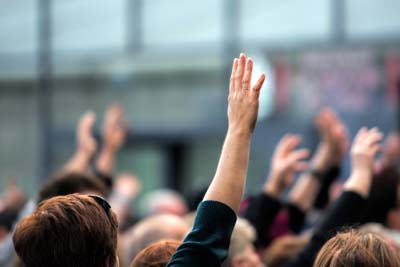The questions we ask ourselves about a society without money.
To begin with, it is not always easy to get an idea of a society without money. Indeed, it is difficult to question this system, as money has been present in our societies for so long.
Yet this change is the key to the evolution of our civilisation, and necessary in the face of the current challenges facing the planet.
On the other hand, it will not be a perfect world and many adjustments will have to be decided together. On the other hand, it regulates the nowadays’ major issues, while opening up new horizons on a sounder basis.
Finally, here you will find answers to the most common questions about a cashless society.
Secondly, it should be noted that the Great Project is open and collaborative. Therefore, some answers will have to be decided together. Indeed, the Grand Projet proposes a system where human potential can express freely. Consequently, a strict and formal framework cannot be imposed in return.
Finally, if your question is not answered here, please write to us.
Today the term degrowth is becoming more and more common. Indeed, the performance of a market system is based on growth, sales and profit. This system, coupled with globalisation, inevitably creates resource depletion. However, we realise that infinite growth in a finite world is not possible.
This deception, which is the basis of the current model of society, is showing its limits. As a result, the managers explain that they will have to think of the worst. This means a lower standard of living. This is rather bitter for everyone.
The non-market model of the Great Project is not based on growth or profits for living. Moreover, it can combine durability, knowledge, modernity and stability, while maintaining comfort.
Finally, in tomorrow’s society, we will change our lifestyles to adapt to the new context. This is completely different from having to decrease. Thus, with a sober, consistent and harmonious lifestyle, there is no feeling of frustration, but rather of reason.
To begin with, the return of barter is often mentioned. However, it is a system of exchange following an arbitrary valuation of goods and services. In fact, it is the very embryo of the monetary system. As a result, it is a laborious organisational system if our medium of exchange is not immediately available. The need to hand over an intermediary will then be felt: money.
There is an organisation that is, on many levels, simpler, more efficient and more fluid, all without monetary drift. Indeed, by following the 4 principles of the MOCICA Great Project, the benefits are for all.
Firstly, everyone will exercise their vocation and everyone will be able to benefit from the other talents when they need them.
In addition, a system of organisation based on the provision of self, rather than money, will be highly beneficial. As a result, it will greatly improve our relationships with each other.
Finally, clinging to (subjective and arbitrary) quantities of identical exchanges may seem more ‘right’ from an ego perspective. However, it is also the source of laborious organisation and many unnecessary losses.
On the other hand, the return of barter does not solve the many problems that need to be addressed (social inequalities, environmental degradation, etc.).
The end of money is the beginning of another management in which we keep accounts:
- Available resources (renewable/non-renewable)
- Our environmental impact
- Needs (fundamental/secondary)
- Activity: what are our skills? Distribution of activity ?
- Productivity, stocks and their distribution
No money does not mean no management. Only the notion of money is taken out of the equation. The management remains the same when it comes to determining food flows, for example.
Resources are produced and managed according to demand, respecting our ecosystem.
It should also be noted that we have state-of-the-art software. These will be updated and optimised by our free cooperating engineers, for whom competition would no longer exist.
Finally, the international transit networks that we have developed throughout the world should be able to respond without difficulty (2).
the international monetary system
To understand whether it is necessary to replace the current international monetary system with another, let us analyse how they work.
On one side, An international monetary system is the set of rules, mechanisms and actors that aim to organise and control the exchange of capital between countries. But on the other hand, it is a system with “black holes”.
Black holes in the international monetary system :
Indeed, international banking and financial supervision finds its limits in a number of “black holes”. As a result, international organisations and regulators do not have access. These black holes can be divided into two categories: geographical and political black holes.
These are, on the one hand, sovereign states where corruption is rife and, on the other hand, off-shore places where tax evasion and money laundering are rife. Or there are no local market or banking supervisors, which is often the case in tax havens. Or they exist, but do not cooperate or are unable to stop massive fraud. This is the case, for example, in states where corruption is rife.
Finally, it is also necessary to understand the principle of the international monetary system.
The principle of monetary systems :
All monetary systems that we can imagine have the same basic principle. They separate people from access to goods and services through money. This seems normal to us. However, the current abuses are the logical and direct consequences of this basic principle. It will act in whatever way we can put it around (1).
This principle creates a powerful engine, as it isdouble lever. On the one hand, it states that if you have no money, you have no access to anything, and you have nothing. Our basic needs such as food, water and shelter are no longer accessible. From this basic principle also arises the opposite side: the more money you have, the more opportunities you have. So we have two forces working together to steer us individually in a single direction: making money.
The dangers of the monetary system :
From this engine, which stems from the original principle of money, two fundamentally harmful characteristics emerge:
- it is a priority enginebecause it is the essential basis for any access. Therefore, for many people, many circumstances, and many reasons, it will be favoured over fundamentals (ecology, well-being, agreement, quality, health, safety, etc.).
- it is an individual engine. It resonates directly with our individuality, as everyone will have to find their own monetary source This engine, which is extremely powerful, is outside the scope of a solidarity and egalitarian incentive. Finally, the money available works by communicating vessels, or like a cake that is divided up. This places us in a competitive position from the very beginning.
The consequences of the monetary system :
From there, all the drifts of our current society are perfectly logical. A monetary system will above all encourage people to make money, by all means, good or bad (mafia networks, pimping, poaching, deforestation, etc.). And also to lower the quality of what we do in order to increase margins. This amounts to sawing off the branch on which we are sitting (programmed obsolescence, not patenting treatments that cure). Also to deplete our resources to sell (growth). In addition, begging or crime will constrain those who have none. Some will have “good leads”. This will lead to disparities, the possibility of domination or corruption.
If we want to change the monetary system and not decide to cooperate freely, we will have to add a system that allows (how?) to control, monitor, prevent effectively what the very basis of our system encourages to do. A monetary system is a dangerous social basis for individualism, suspicion, mistrust, inequality, tension, confrontation, corruption, criminality and all the excesses we know. And there will always be an ecological basis of depletion, impoverishment, pollution and destruction.
To summarise:
Everything may seem permitted in a non-market society. But if every individual is free, so is the community in which they live. No one can dominate, no service or good would be granted without the agreement of the one providing it. It makes sense to put yourself on a similar level if you don’t want to alienate the community and benefit from the indispensable skills of others. All mafia networks no longer have a reason to exist (how can the concept of pimping be considered, for example?), corruption becomes impossible. Infinite growth and the depletion of resources are no longer necessary.
No monetary system can guarantee human error. On the contrary, it encourages and allows almost all of them. Today, it is as easy to understand this from a theoretical point of view as it is to see it from a practical point of view.
The disappearance of money no longer allows an individual to benefit at will from the efforts of others. Indeed, one can no longer exercise power or influence over others. It is no longer possible to buy. Those who give a particular good or service will follow the terms of allocation or sharing chosen together. Moreover, they have no profit in making people consume more. The absence of budgetary constraints, financial pressure, competition, fear of losing one’s job, create the conditions for activity to create a general enthusiasm.
Is it possible to do nothing and take advantage of others?
This requires their agreement as they manage the organisation: production and distribution. Moreover, the end of money makes it easy to encourage every citizen to do his or her bit.
Level 3 of the GDO (resource area) is responsible for the management of the supply. It is responsible for the production, transport and distribution of food. This will be done from the territory to the attached towns and villages.
Then, in a common and global way, we can set up an efficient collection and distribution model. Each sector can then adapt to its specificities.
Finally, a national cooperative will be used to centralise and export surplus production.
First of all, with financial competition out of the way, each sector (food, education, research, health, etc.) will be able to play its part for the others.
Second, we will take steps to provide automatic access to basic goods and services. The connection to water, electricity and services will be automatic.
Finally, access to other goods or services will be available on request.
There are many ways to meet a need for a good or service.
The preparation phase will make it possible to evaluate precisely the best solutions for each situation.
Adapt, learn to do it yourself, get together with interested parties, discuss, exchange with competent citizens.
Secondly, as training courses are no longer paid for, it is easy to retrain, especially to fill the gap in a trade.
Finally, education can highlight sectors in demand to attract students.
This would immediately raise a problem that would naturally be put at the heart of our debates. Indeed, the society would not be functional. How to solve it? For example, we might consider that art is a common passion that cannot meet our basic needs. It cannot be considered as housing, food, clothing. As such, it should be considered as a service of a secondary nature that does not substitute for individual participation in the core sectors.
Another example would be to take into consideration the public utility of the artist (the interest and demand he/she generates around him/her). Below a certain level of enthusiasm for the artist (a singer whose songs are rarely or never downloaded, a band that does not sell out, etc.), the artist may have to consider his or her art as a passion and not as a public utility.
Other forms of management/organisation are also possible.
Companies would not disappear. They would become common property. They would be managed by the workers or any other form of organisation agreed by the assembly to which they are attached
With regard to working hours and the resulting obligations, there are many possible arrangements that we need to define together.
The Great Project is not intended to create a complete ‘bible’ but just to provide the book in which humanity can write its own organisation.
A company has a network to which it can communicate and share its desire for a world without money (add a link in the signature of emails for example). It can also communicate this decision to all its partners, employees and suppliers to encourage them to do the same.
It can also encourage its partners to imagine and anticipate the reorganisation of their companies under the advantages of a non-market organisation. No need for a marketing department, no patent applications, sustainability of its products, automation possible without socio-economic repercussions, competitors becoming collaborators etc.
This is a matter that we will determine together. Redefining the role and place of communication and marketing in a society that will no longer encourage consumption.
This is a complex subject. We could choose to keep these systems to promote, for example, non-polluting products/services, encourage consumption during abundant harvests or highlight non-materialised savings (happiness, well-being, etc.). In addition, it would allow for the mass dissemination of information about important discussions for humanity etc.
We can see that there is still good hope for these sectors.
We see two possible paths.
Or they group together and organise themselves according to a market model (if technically possible).
Either a global referendum will decide the tipping point for everyone (as was the Brexit for the UK after the referendum of 23 June 2016).
In the latter case, they will be welcomed with the same duties and enjoy the same benefits as other citizens.
Getting out of the system is necessary to deal with the demographic issue. Leaders deliberately avoid the issue, because a high birth rate is necessary for economic growth.
For example, in many poor countries, where modern technology is missing, children are needed to maintain the family or agricultural business.
In addition, we will be able to provide for everyone’s “old age” without having to rely on descendants. This is the case in some countries today.
We will also be able to more easily set up family planning, for a chosen and managed birth rate.
It should also be noted that current studies show that the birth rate is lower in “developed” countries (13).
In a no-money society, the overall standard of living rises. Access to education, contraception and women’s work throughout the world will become more widespread. These factors are key to regulating global demographics in a natural way.
Oil has to be scarce (for ecological reasons), and will be scarce (because it is not renewable). These are two reasons to move to a non-market, energy-efficient modelof society.
Could the oil-producing countries obstruct the transition to a non-market system? Often close to the Equator, they will be the first to suffer from global warming and have the greatest interest in investing in this transition, like Iran, for example, which imports more food in drought years.
Moreover, most oil-producing countries are not self-sufficient in other resources such as food. It is and will always be in the interest of every individual and every nation to weave a true management of planetary resources.
We do not offer bartering. And so “I only give if you give to me” is not the basis of the organisation we propose.
In a non-market society, you don’t have to give something special every time you call on someone. It is “one-way”.
However, the question arises as to whether you should make a contribution (here or there, at the same level as the others).
Indeed, the donation moves other lines. Like a flat share of 5 students, if one decides not to clean the common areas, then the other 4 will have to spend more time doing so.
For every individual who is fed, housed, cared for and heated, there is a human effort behind it.
At a low level of non-participants the impact is minimal.
But the more citizens decide to do nothing, the more those who participate will have to do more for themselves.
So this freedom to do nothing at all, reduces the freedom of others a little.
Therefore, they have a say in whether they accept or not. The Great Project does not take a position because it invites reflection and discussion on this type of subject.
The shift to a non-market society will only happen under two conditions. The first is that we are self-sufficient in resources and human resources (i.e. that all sectors are fully covered). The second is that at least 50% of us want it for democratic reasons (ideally on a global scale or on a smaller but self-sufficient territory like a continent).
If, for example, 70% of us wanted it, our aim would not be to impose it on the remaining 30%. On the other hand, they will have to be self-sufficient to continue to organise themselves with a market system. They will also need to find a way to organise themselves if they are scattered. If it is not desirable to impose a model, even on a minority, it is even more unacceptable for a minority to impose its model on the dominant will. Then they will be invited to join us according to non-market principles.
Firstly, this choice would put an end to the many excesses of our current society. Some examples are: war, poverty, malnutrition, deterioration of the environment and ecosystems, trafficking, power, etc.
Also, because we would be more motivated to organise ourselves in this new context. Indeed, the choice of sector and conditions, the sharing of efforts, the absence of hierarchical and financial constraints, etc. All these points are incentives to get organised.
Secondly, no longer focusing our efforts on beating the competition or generating profit would give meaning to our activity. As well as adapting and developing all areas of society in this new world. To improve the living conditions of humanity. Maintain climatic conditions.
Finally, no other measure or alternative can create such a change.
By getting involved in the Great Project, you are helping to ensure a major change for future generations.
We encourage and support the realisation of such initiatives. The Great Project application (app.mocica.org) allows, among other things, to bring together members who would like to act in this sense.
However, we anticipate the difficulties that this raises and the goal that we must achieve. The difficulties are numerous: acquiring untaxed land, having all the necessary material goods (housing, tools, clothes etc.) without taking out a loan, passing on everything the village cannot produce itself (e.g. salt, mobile phones, wifi, clothes, medical care, glasses, school supplies etc). Would such a village be a persuasive and encouraging demonstration to the general public?
On the other hand, more free villages would not reduce soaring debts, inequalities etc At some point, therefore, it will be necessary to abolish the means of payment on a massive scale, which is what the Great Project proposes.
In addition, over 50% of the world’s population lives in urban areas. We want any citizen who supports the transition to a cashless world to be able to get involved wherever they are. Hence our encouragement to all those who wish to act to meet in local assemblies, whether in the countryside or in the city.
Our aim is not to create free bubbles in a market context, but to switch to a non-market context that offers a natural context for fulfilment. Why not target this objective directly?
The abolition of slavery, going to the moon, or simply making a phone call seemed like unattainable utopias before it happened.
In France, for example, there are 22 million volunteers, i.e. 1 out of 3 people work without expecting money in return.
In perspective, there are 30 million paid workers in the same country.
So we can see that this world without money is already much more present than we think.
On the other hand, it is utopian to believe that we could profoundly change the system without putting an end to money.
What other measure would be capable of putting an end to inequality, over-consumption, corruption, trafficking, competition, etc.?
The Great MOCICA Project does not incriminate anyone or do anything legally or morally reprehensible. The action plan deliberately avoids common obstacles (it is a self-sustaining organisation that does not depend on members’ funding, time or state support to become a reality). Despite this, it is a societal project that will be difficult to stop. We are not in a pyramid system where cutting off the top is enough to shut down the organisation. All ongoing meetings with members who have the project in mind should be stopped. In terms of organisation, we are working to anticipate all possible obstacles (censorship, etc.).
A context that does not allow certain crimes (illegal markets, money laundering etc.), does not encourage delinquency (drug trafficking, hold-ups etc.). Without violence linked to precariousness or the feeling of social injustice, we can expect a massive decrease in crime and other forms of violence. However, it seems unlikely that this will protect us from all dangers (religious fanaticism, sexual aggression etc.). The development of law enforcement will depend on our needs and our choice.
The change in civilisation will affect almost all areas. The many interactions between different aspects of the world and the issues involved are rapidly affecting all facets of society. What is certain is that we will still experience climate disruption due to our activities in the previous century. On the other hand, we will also have much more resilience to deal with it.
Sensitive issues such as migration, vaccinations and crisis management will no longer suffer from the pressure of money. It will no longer be able to influence decision making, or even question its validity.
The Great Project of MOCICA, serves only as a tool, an unconditional bridge with the sole interest of creating this new world with this non monetary system.
There is no particular benefit for the founder(s) of the project.
The objective of the Great Project is thus defined, but we will continue to develop (if it is everyone’s choice) certain elements such as the application that enables the organisation.
Today, it is difficult for many people to have a social role, and unemployment is growing (5) due to multiple socio-economic factors (automation, pandemic, demography, etc.) (6).
The market system has from the beginning excluded a part of the population, which varies in an unpredictable way. In a world without money, unemployment and redundancy are excluded. There are no administrative, economic and financial barriers to acting in and for society.
Today, enthusiasm is difficult in this context of obligation, complexity, competition, heaviness, pressure to perform, lack of recognition and meaning. Fortunately, while constraint kills enthusiasm, freedom encourages and energises initiative.
In a world without money, doing nothing would be seen as a personal choice and not the fault of a failing system. But who would refuse to participate, and for how long, in the society that provides everything they need?
Moreover, the vast majority of humans hate boredom.
This is why participating, contributing to the collective, allows personal development and encourages a sense of belonging. So much so that being useful to others is sociologically recognised as particularly important and sought after. It is an indispensable basis for self-esteem (7).
What motivates people to work is not money, but what money provides: housing, food and making plans. Without money, our needs would be the same and so would the motivation.
A free organisation is the ground for voluntary, spontaneous, unifying, fluid, fair and dynamic cooperation. This is what allows everyone’s talents to find their place.
Efficient organisation, a fulfilling social life and a productive and qualitative environment are among the many benefits obtained.
First of all, we don’t have an endless appetite (all-you-can-eat buffets exist, that’s because they are profitable). Nor do they have unlimited material needs.
Between 30 and 50% of the food produced in the world is lost (8) largely for financial reasons: calibration, loss during long journeys, lack of financial means for storage or training in developing countries (9), etc.
So let’s not rely on a fear of scarcity, while encouraging (through education and the media) a responsible consumption (10). The financial system seeks above all to keep us in a state of consumption through a number of mechanisms, in particular by creating fictitious needs and desires (11) .
The end of the frustration thus caused will be a new breeding ground for natural sobriety. Just because money disappears does not mean that everything can be used at will.
No money does not mean no bookkeeping or no benchmark, on the contrary.
With today’s technology and the estimation of available resources, we can keep an extremely accurate management. This was not the case 2700 years ago, when money was created.
According to the economist Jean-Marie Albertini, scarcity is a “social invention”, complemented by the invention of money. It is part of the quest for a violence that is not suppressed but diverted (12). When goods no longer have a financial value, they will only have their real value. The value that corresponds to the need of each individual. If money disappeared, owning more than others would not only not bring any strong advantage, but on the contrary would give the image of a materialistic and self-centred mind. In a non-market relationship, the customer is no longer king. Would we dare to ask a disproportionate effort from someone knowing that they are doing it for free? This is without taking into account the fact that the offerer can moderate a demand that would seem excessive.
The question of human nature is a hot topic of discussion. This shows that the nature of the human being depends mainly on the context in which it evolves (3). Therefore, our current behaviours are the fruits of our natural adaptation to our society (our nature is to allow this adaptation). The real cause of a ‘bad’ human is his reaction and adaptation to his environment. Man cannot evolve through servitude or threat. On the contrary, it restricts him, retracts him and induces aggressive behaviour.
On the other hand, when people’s basic needs and security are ensured, there is a spontaneous openness to others.
This makes it possible to realise that the social climate, necessity, education or culture are parameters from which our behaviour results.
The monetary system does not guarantee good behaviour, on the contrary. This is why the competitive spirit that stems from money only divides us, and the need to eat when it is no longer guaranteed drives us to irrational choices (4). Beyond that, money encourages ‘more and more’ and the thirst for domination that it makes possible. Many people even blame money for perverting human nature! It is necessary to think of the issue in terms of context and not nature.
If elderly people wish to be active, they are welcome to, if they cannot be active we will look after them.
We encourage the mobilisation of all members of the Great Project to communicate and contribute to its realisation.
Spreading the Great Project, organising meetings, learning to speak out, meeting in local assemblies, soliciting the media and personalities, promoting free access, sharing and solidarity, developing autonomy, etc.
Massive mobilisation will result in bringing the Great Project to public debate and implementation.
The Grand Projet cannot predict this. Generally speaking, we believe that the length and difficulty of studies will not reduce the enthusiasm today, quite the contrary. The end of money will allow us to study without financial barriers and difficulties of student life. Access and living conditions will be the same if the person reaches the end of studies. No anxiety about studying unnecessarily because of a fluctuating job market and possible financial crises.
Moreover, as long studies are no longer synonymous with “an obstacle course”, some people may finally consider fulfilling their vocation and switching to their preferred field. As a result, we believe that there could be more students who will come and who, moreover, will do their job out of passion and not out of financial interest.
The recognition and prestige of a profession that requires long studies are also great motivators. An astronaut, for example, does not wait for money to enter one of the most selective competitions of all to become an astronaut.
Finally, a world without money favours mutual aid, sharing and the collective. Filling a gap in a key area would bring great recognition to the community.
By mutual agreement between the parties concerned:
- Allocation to the most useful (e.g. single-storey housing for the elderly or people with reduced mobility)
- As environmentally friendly as possible (in the vicinity, within a certain radius)
- Allocation by rotation or by reservation
- Divide equally between the interested parties
- Do not allocate it to anyone to keep it fair
- By draw
- Other
Moving to a non-market society does not mean moving to a society without regulations. They are useful, not to reduce our freedoms, but to protect them. They may be of a security nature (prohibition to harm the physical or moral integrity of others). Therefore, they may be necessary to ensure the sharing of resources and the implementation of jointly agreed terms. One of the advantages of the Great Project is that they are proposed and validated by the citizens (see GDO).
In all cases and in all possible models of society, there will be disagreements.
In the GDO, it is not a minority that decides, nor the majority, but the search for consent. Each assembly is free to make its own regulations. It does so in the choices that concern it, not in those that would concern other assemblies.
As soon as one or more other assemblies are concerned by a choice (which is therefore a common choice) a discussion with consent is the best way to find a mutually satisfactory agreement.
First of all, in the GDO each assembly does not make “its own regulations”. It chooses the regulation in its own choices, not in those concerning other assemblies.
On the other hand, just as you may not know the laws and all the customs of a country you are visiting today, it may not be necessary to know them in a non-market organisation either.
Finally, we will probably be informed, as we are today, of the essential points to know.
The identity card is an issue that will be put to the citizens’ choice. A debate can be organised according to objective and impartial methods of debate that the citizens have validated.
The aim is to highlight the different sides of a subject in an objective manner so that everyone can make an informed choice.
Indeed, different points of view have to be taken into account:
Some people will simply not want to have an identity card, others will want it with traceability, for example to have instantaneous care without prior paperwork or examinations (integrated medical file) etc.
The advantages and disadvantages should be discussed before collective validation.
Finally, a map would be useful to know the activity (in the organisation), sharing and consumption. It is difficult to have accurate management of our organisation and resources without it.
À quoi peut ressembler une société sans argent ?
The environment in a society without money

Resource Management Service.
The establishment of a resource management service will ensure effective management and allocation. Indeed, human creations must ensure present needs without compromising the earth and our future generations.
The climate balancing department.
At a later stage, a climate balancing department could also be created. So it studies how human activity can benefit the climate, to reverse the trend. In order to improve the climate to increase the habitable areas on earth.
Preserve a climate that is favourable to the greatest number of people, with a minimum of natural disasters.
Indeed, more living space on the planet contributes to the demographic buffer (more space for more humans).
Widespread sustainability.
Furthermore, the industrial sector will integrate sustainable development in a comprehensive way.
In addition, through the sharing of knowledge, the quality of goods and services will expand rapidly. Especially since relocation to exploit cheap labour will no longer be an option. In addition, resource mapping and global distribution logistics will significantly reduce greenhouse gas emissions.
Finally, the transition actions already in progress (tree planting, permaculture, renewable energies) will develop more rapidly.
The economy in a society without money
The freedom to do business
Welcome to a society that finally gives you all the means to fulfil your potential. Not only from training to production tools, but also from start to finish.
Moreover, there is no longer any need to fear competition or unemployment. In addition, no more needs to sell, and specially to sell more! Similarly, we can see from here the change in professional relationships between employees. In addition, the administrative burden on the financial system to operate will be greatly reduced and focused on logistics. Therefore, it will save a lot of time for companies and individuals. Finally, without money, everyone does the job of their choice for pleasure, leading to a much higher quality result.
The end of the scam
Moreover, with the end of money, there will be no more scams motivated by the lure of money. No more fear of being ripped off by buying or subscribing to this or that. Moreover, you no longer need to know whether you are getting a good deal or not by taking this item.
Living in abundance in a society without money
Indeed, the only question to ask will be:
“Do I really need it?”
If this simple logic of consumption is taught in schools, then humanity can live comfortably.
Moreover, without competition it is possible to make a great leap forward in terms of industrialisation. This is to enable us to further increase our current production capacity, while improving the systems’ efficiency. The consequence will be to produce more than today while consuming resources sustainably.
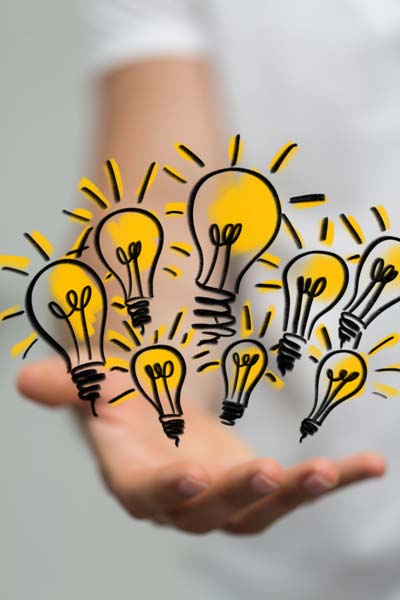
Science in a cashless society

Science will become “open source”, allowing the sharing and dissemination of knowledge for everyone.
A scientific revolution
First of all, there will be major implications for the speed of scientific development. Indeed, Derek Price, founding father of the scientometryWe know that science is evolving exponentially. In this respect, the current digital revolution is a perfect example. However, despite numerous obstacles, such as patent filings, there is still a lot of room for improvement. Imagine what impact it would have, if tomorrow knowledge was available to all?
The geniuses of tomorrow
Thus, free access to information will allow the revelation of human potential.
Which, in turn, will enrich the heritage of our knowledge.
Innovation in a cashless society
Firstly, in a society without money, all research and development centres will be able to collaborate on joint projects.
So imagine the most creative engineers working together on innovation: what would be the next smartphone?
Similarly, what would happen to the car of tomorrow if manufacturers from all five continents pooled their know-how?
Enfin, quelles seraient les innovations si les membres de chaque secteur (santé, habitat, énergie, agriculture etc.) mutualisaient leurs connaissances ?
The innovation revolution
To begin with, the writer of the Brundtland Report (14) commissioned by the UN and now considered historic, would be delighted.
Indeed, a cashless society would be very conducive to releasing innovation from its chains to meet the needs of sustainable development.
As a result of the collaboration factors mentioned above, the capacity for environmental innovation would be increased tenfold. The same applies to products, processes, techniques or organisational methods. Moreover, without money, it is easier to bring a business up to standard. In conclusion, knowledge sharing will allow innovations to spread rapidly.
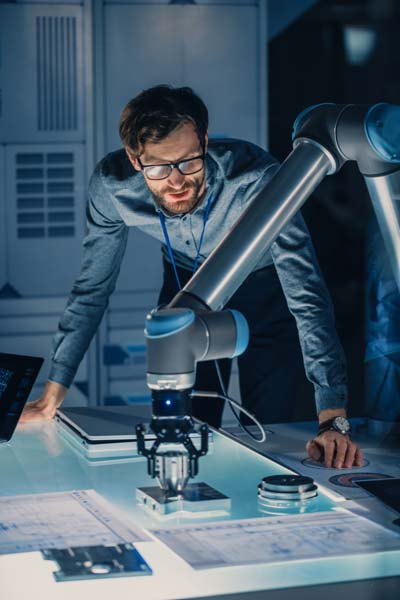
Employment and automation in a cashless society
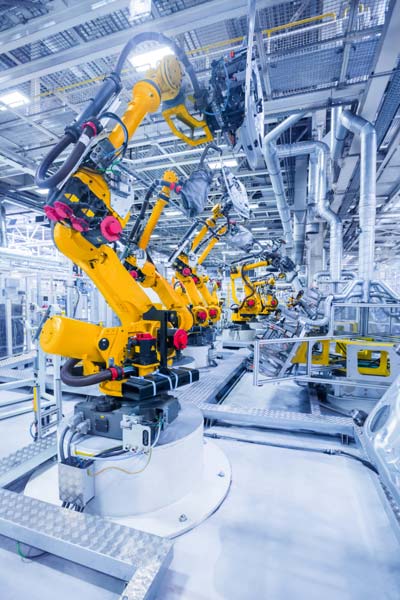
Employment in a society without money:
Firstly, it must be said that 375 million people will be forced to change jobs by 2030 (15). Nowadays, this means so many unemployed people and so many lives placed in a precarity situation. On the contrary, in a society without money, it will only benefit humanity. Besides, being replaced by a machine will only be an advantage in a society without money.
Automation in a society without money.
In many cases, human work is more environmentally damaging than machine work. In fact, this will be more widely recognised once engineers have optimised the automatic systems to make them more efficient than ever. In addition, whether it is low-tech or high-tech industry, automation has many advantages. Whether it is its productivity which is no longer in question, or the time it frees up for humans.
Finally, the challenge is to direct automation to the most crucial sectors. That is, in terms of ecology, working conditions and drudgery.
Pandemic and Health Crisis in a Cashless Society

The issue of health crisis management and vaccines, which are currently controversial, would also be quite different. Indeed, in a society without money, lock down does not harm the economy or its inhabitants. Instead, the population is protected, without creating more collateral damage.
Similarly, in a world without money, the issue of vaccination would no longer create mistrust. Indeed, laboratories would no longer produce vaccines and medicines for money, but only for the well-being of humans.
